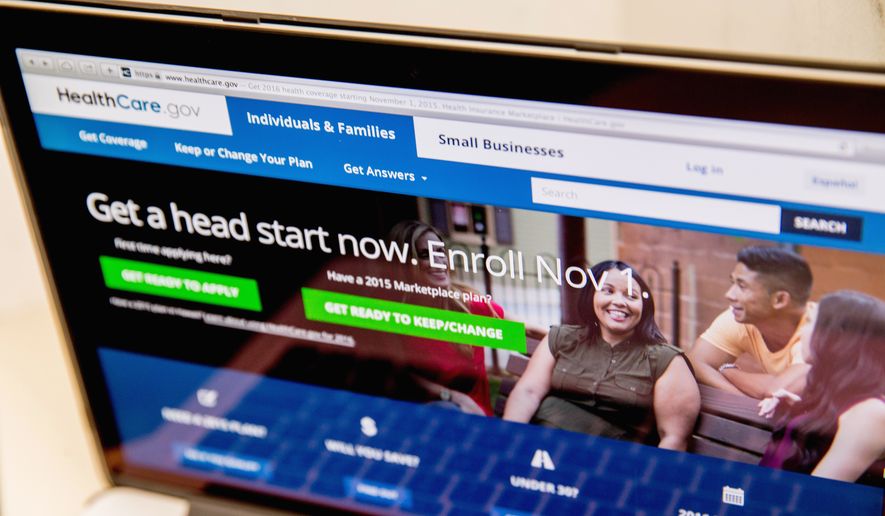Roughly 12.7 million people have selected plans on Obamacare’s exchanges, the administration said Thursday, giving the first comprehensive look at potential enrollment in the third year of the health overhaul.
Combined with another 400,000 customers who enrolled in Obamacare-derived programs in New York and Minnesota, the administration has barely surpassed an official target of 13 million sign-ups — though the number is likely to fall once customers who fail to pay their bills are kicked out.
The Health and Human Services Department declared victory, saying the federal exchanges that cover 38 states signed up 9.6 million customers, and 4 million of them were brand new.
“Open enrollment for 2016 is over, and we are happy to report it was a success,” HHS Secretary Sylvia Mathews Burwell said.
The agency said customers were extra savvy this time around, with the majority of them shopping around for a better deal instead of renewing the plans they had last year.
President Obama himself had said that rooting out enrollees who didn’t sign up in 2014 or 2015 would be challenge. So this time around, the administration focused its efforts on cities with high concentrations of uninsured residents.
HealthCare.gov CEO Kevin Counihan singled out Las Vegas, Yuma, Arizona, and several towns in Texas as places where enrollment grew rapidly. He also said people seemed to be aware of the “individual mandate” tax for shirking insurance. That penalty starts at about $700 for 2016.
HHS hopes that 10 million of the customers remain at the end of the year — a goal it should meet, unless 2.7 million enrollees drop out for nonpayment or other reasons.
“It’s been a great year,” Mr. Counihan said.
Capitol Hill Republicans say the administration is overstating its progress, and that many Americans wish Congress would start over.
Last month, the GOP-led Congress forced Mr. Obama to veto a bill that would have gutted his health care law.
House Democrats sustained that veto Tuesday, defeating the GOP’s deepest salvo yet against Obamacare, although it delivered a rallying cry to conservative Republicans in a pivotal election year.
Andy Slavitt, acting administrator at the Center for Medicare and Medicaid Services, said his agency was able to ignore political headwinds and focus on insuring more Americans, resulting in a stable and sustainable marketplace.
“For the people who work on this every day, that is a really, really successful place to be,” he said.
The young marketplace faces a series of fiscal challenges, however. More than half of the law’s nonprofit co-op plans have failed, while insurers such as Aetna and UnitedHealth Group say they are losing money on the exchanges.
UnitedHealth has threatened to withdraw by 2017, though other insurers say they’ll stick it out.
Meanwhile, the law is still tangled up the courts.
House Republicans are pushing a lawsuit that says the administration is making cost-sharing payments to insurers on the exchanges without explicit permission from Congress.
Republicans also said they never appropriated money for the Basic Health Program, which is designed to give states the flexibility to help out people who make 200 percent of the federal poverty or less, but may float in and out of Medicaid eligibility.
So far, Minnesota and New York taken advantage of the provision, bringing in the 400,000 people that HHS described Thursday.
• Tom Howell Jr. can be reached at thowell@washingtontimes.com.




Please read our comment policy before commenting.